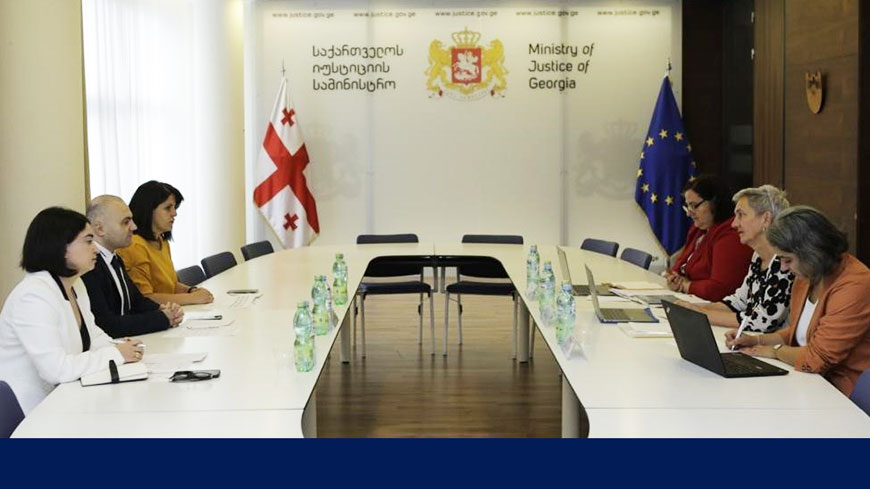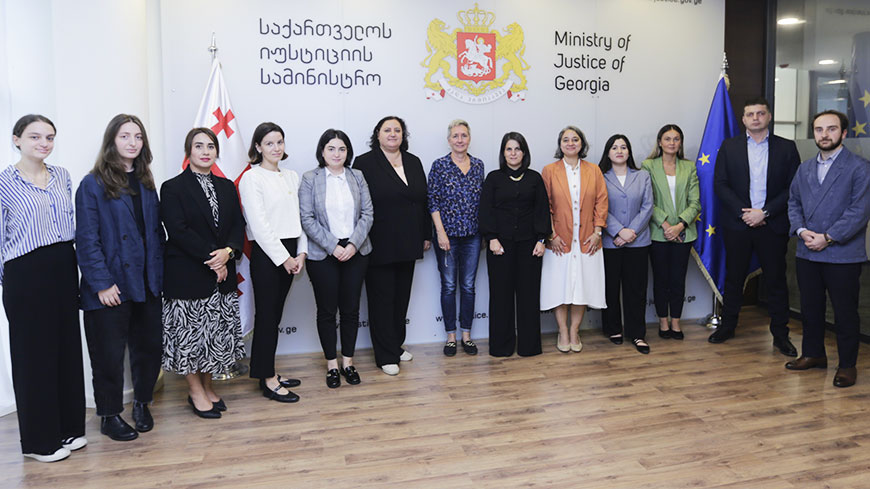A delegation of the Council of Europe's Group of Experts on Action against Trafficking in Human Beings (GRETA) carried out an evaluation visit to Georgia from 23 to 27 September 2024, as part of the fourth evaluation round of the Convention on Action against Trafficking in Human Beings.
This new evaluation round of monitoring the implementation of the Convention focuses on vulnerabilities to human trafficking and measures taken by States Parties to prevent them, detect and support vulnerable victims, and punish the offenders. This includes a focus on the use of information and communication technology (ICT), which brings structural changes to the way offenders operate and exacerbates existing vulnerabilities.
Prior to the visit, the Georgian authorities provided a reply to GRETA’s questionnaire for the fourth evaluation round. In addition to the new thematic focus, GRETA examined how the main recommendations made in its third evaluation report on Georgia have been implemented.
During the visit, the GRETA delegation met Mr Beka Dzamashvili, Deputy Minister of Justice, and officials of the Ministry of Justice (including the Secretariat of the Inter-Agency Council on Combatting Trafficking in Human Beings), the Ministry of Internally Displaced Persons from the Occupied Territories, Labour, Health and Social Affairs, the Agency of State Care and Assistance to (statutory) victims of trafficking, the Ministry of Internal Affairs, the Ministry of Finance, the Ministry of Education and Science, the Labour Inspection Office, the Legal Aid Service, and the National Tourism Administration. Discussions were also held with prosecutors of the Prosecution’s Service of Georgia and judges of the Tbilisi City Court.
Furthermore, the GRETA delegation met representatives of the Public Defender’s Office (Ombudsperson). A meeting was also held with staff of the Human Rights Committee of the Parliament.
In addition to having meetings in Tbilisi, the delegation travelled to Kutaisi where it met representatives of the local social services and police, as well as members of the mobile group which carries out outreach work to detect children in street situation. It also had an online meeting with police officers and prosecutors of the Anti-Trafficking Task Force of the Adjara Autonomous Region.
The GRETA delegation held separate meetings with non-governmental organisations and representatives of the International Organisation for Migration (IOM), the United Nations Children's Fund (UNICEF), the United Nations High Commissioner for Refugees (UNHCR) and the International Centre for Migration Policy Development (ICMPD).
In the course of the visit, GRETA’s delegation visited an NGO-run shelter for victims of domestic violence and victims of trafficking, a shelter for children in street situation, a reception centre for migrants, as well as the Centre for Psychological and Social Services for Children Victims of Violence.
The visit was carried out by Ms Tatiana Catana and Ms Dorothea Winkler, members of GRETA, who were accompanied by Ms Parvine Ghadami of the Secretariat of the Anti-Trafficking Convention.
Following the visit, GRETA will prepare a draft report, which will be sent to the national authorities for comments. GRETA will subsequently adopt a final report which will be made public in 2025.





